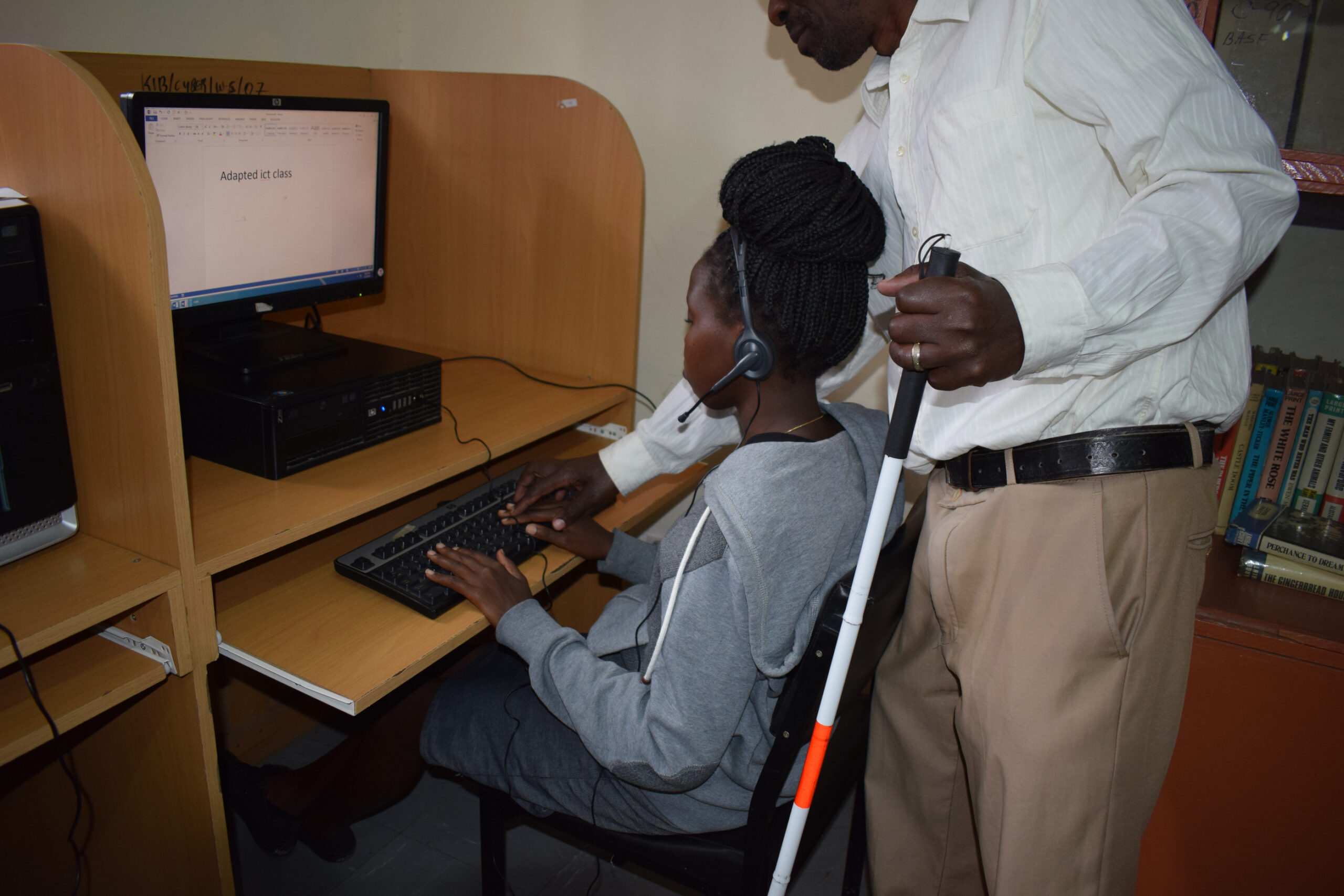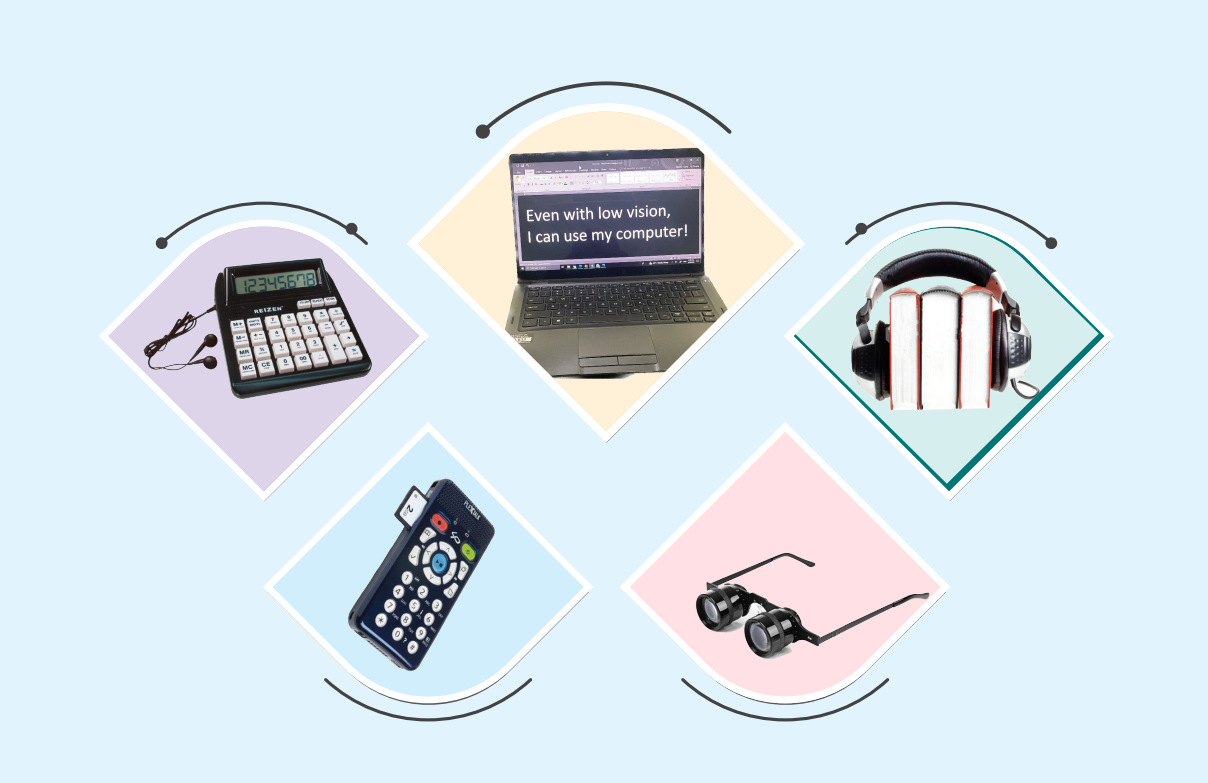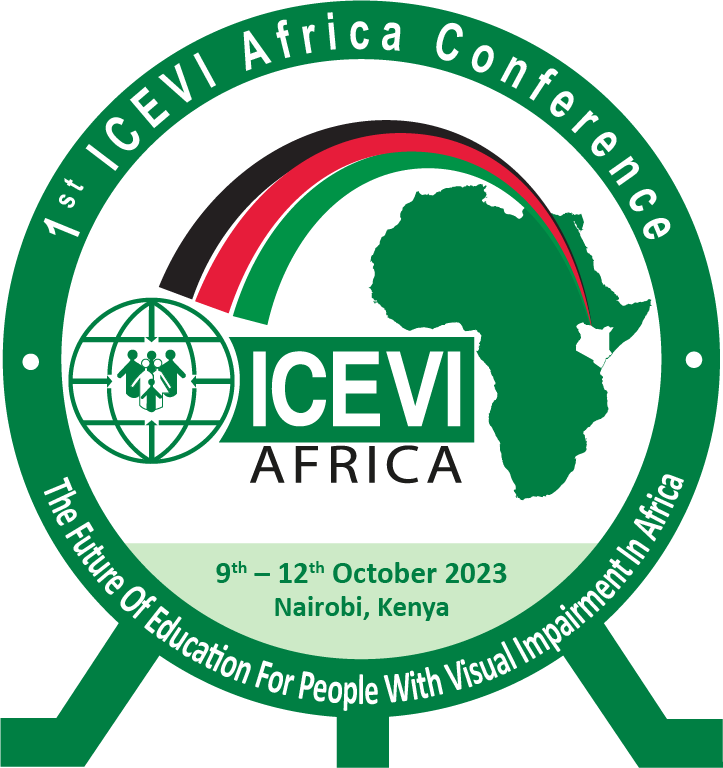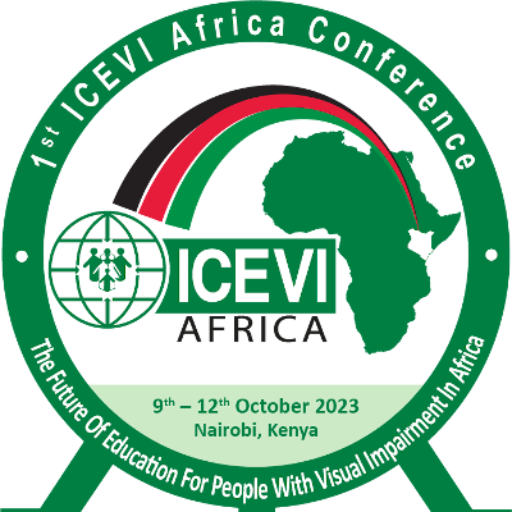The Conference Call for Abstracts is now open! This Call closes on 31st May 2023.
1. Abstracts for Panel Presentations
Abstracts are invited for presentations at Panel Sessions. Interested presenters are required to submit high quality research, scholarly or empirical papers that focus on the future of education for people with visual impairment in Africa within the following areas:
(a). Education For All Learners With Visual Impairment
Papers under this sub-theme will discuss strategies and best practices for ensuring enrollment and retention in school for all learners with visual impairment. These may include interventions for early identification and placement of learners with visual impairment; educational rehabilitation, counseling, psychological support and return to school for learners who lose their sight; managing school dropout levels among learners with visual impairment; and, alternative education for out-of-school learners with visual impairment.
(b). Early Digital Literacy
This sub-theme will explore approaches and proven models for integrating digital literacy and technologies in the education of learners with visual impairment. Papers under this sub-theme will demonstrate impact-driven scalable models of digital literacy for early learners; the use of mainstream digital technologies to enhance inclusion in education; and, the emergence of accessible digital content as the medium of learning resources of the future.
(c). Access to Science, Technology, Engineering, and Mathematics (STEM) Subjects
Papers under this sub-theme will focus on increasing access to and uptake of STEM subjects by learners with visual impairment. Papers will demonstrate model interventions for creating conducive ecosystems for the teaching of STEM subjects to learners with visual impairment; strategies for creating interest and confidence in STEM subjects among learners with visual impairment; and, case stories and lived experiences of persons with visual impairment pursuing studies and careers in STEM-related fields, among others.
(d). Transition In Education
Papers under this sub-theme will explore strategies for removing barriers and enhancing the transition of learners with visual impairment through the education system. Papers will address, among others, measures to improve the assessment of educational performance for learners with visual impairment; strategies to increase access to tertiary and higher education by learners with visual impairment; and, formalization of alternative curriculum pathways for the transition of visually impaired learners unable to benefit from regular curricula.
(e). Recognizing Diversity in Visual Impairment
This sub-theme will deliberate on measures and approaches to provide quality education to visually impaired learners with diverse needs. Papers may discuss strategies for optimizing the use of functional sight among learners with low vision; measures to provide meaningful education to learners who are deafblind; and, models of education and support services for visually impaired learners with additional disabilities. In addition, papers may discuss and demonstrate models for providing education to learners with visual impairment in emergency and humanitarian situations.
(f). Data, Evidence, and Knowledge for Quality Education
Papers under this sub-theme will demonstrate strategies and models for the preparation of learners with visual impairment for an inclusive world of work. Such strategies will include replicable models of mentorship and early development of contemporary employability skills: access to industry-driven technical and vocational education and training; and, nurturing talent, sports, and other forms of self- employment among persons with visual impairment.
(g). Data, Evidence, and Knowledge for Quality Education
This sub-theme will focus on the use of data, evidence, and knowledge to enhance the provision of quality and inclusive education for learners with visual impairment. Presenters will have the opportunity to demonstrate the use of national information systems, such as national census data, national educational management information systems, and national examination results, in improving the education of learners with visual impairment. In addition, presenters may demonstrate the use of academic and action research to influence national policy and practice for the improvement of the quality of education for learners with visual impairment.
(h). Lifelong Learning
Papers under this sub-theme will discuss approaches and best practices for promoting lifelong learning for people with visual impairment as well as professionals and other persons supporting persons with visual impairment. Areas of focus may include making libraries and information services accessible to persons with visual impairment; increasing opportunities for personal and professional development in the area of visual impairment; and, delivering community-based inclusive adult literacy and rehabilitation services for people with visual impairment.
(i). Towards Universal Design for Learning
Papers under this sub-theme will discuss the future of education for learners with visual impairment within the context of Universal Design for Learning. Papers will demonstrate strategies for training and preparation of teachers to serve learners with diverse educational needs and for inclusive classrooms; development of inclusive pedagogies and learning resources for all learners; and, proven models of inclusive basic education programs where all learners live, learn, and play together.
2. Abstracts for Workshops and Interactive Sessions
Abstracts are invited for Workshops and Interactive Sessions. Workshops and Interactive Sessions are intended to offer opportunities for short training and skills development and for focused discussions on specific topics of critical interest in the education of learners with visual impairment. Hosts of Workshops and Instructive Sessions are therefore advised to design sessions that build new skills or stimulate dialogues that contribute to the future of education for people with visual impairment. They are required to submit Abstracts describing the nature of their sessions as well as their recommended participants.
3. Submission of Abstracts and Full Papers
All Abstracts are to be submitted online using the form below. Once you submit your Abstract, you will receive an email with a copy of your Abstract in PDF for your record. The outcome of the Abstract selection will be communicated by 30th June 2023. Panel Session Presenters whose Abstracts are accepted will be required to submit their full Papers by 31st August 2023 for inclusion in the Conference Proceedings. Guidelines for full Paper preparation and presentation will be provided in due course. Note: Submission of full papers is not required for Presenters of Workshops and Interactive Sessions.
Submit Abstract



